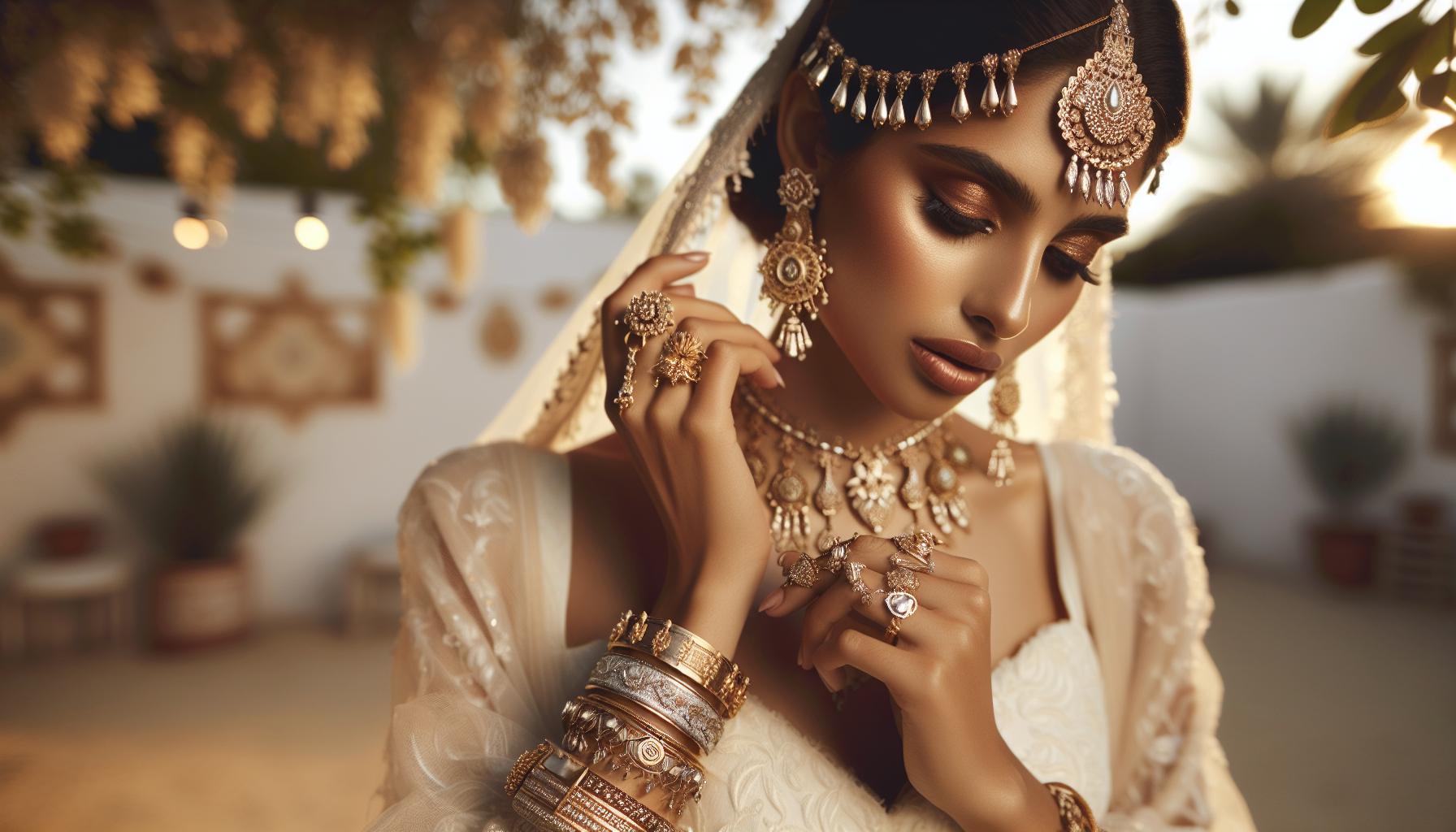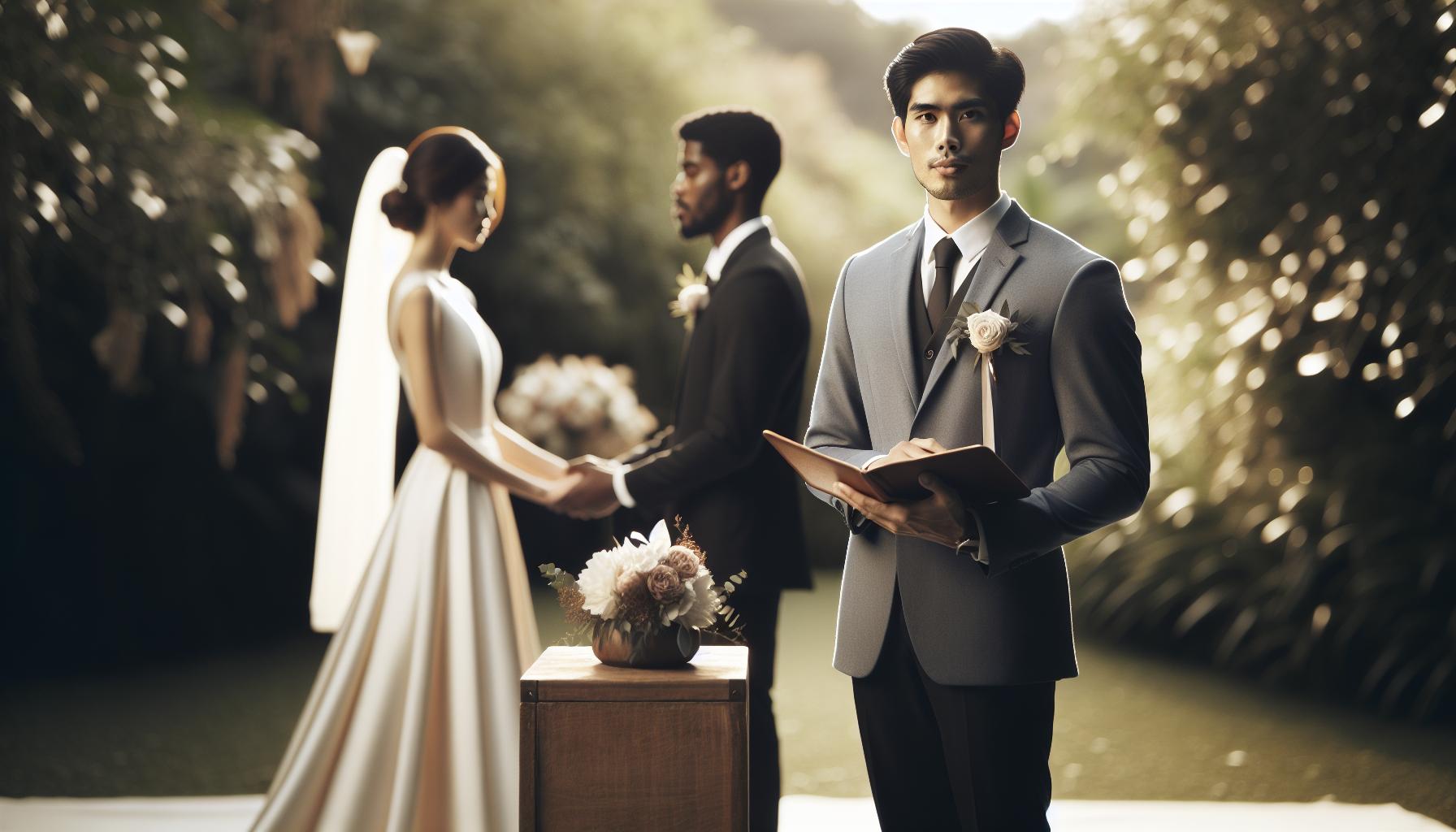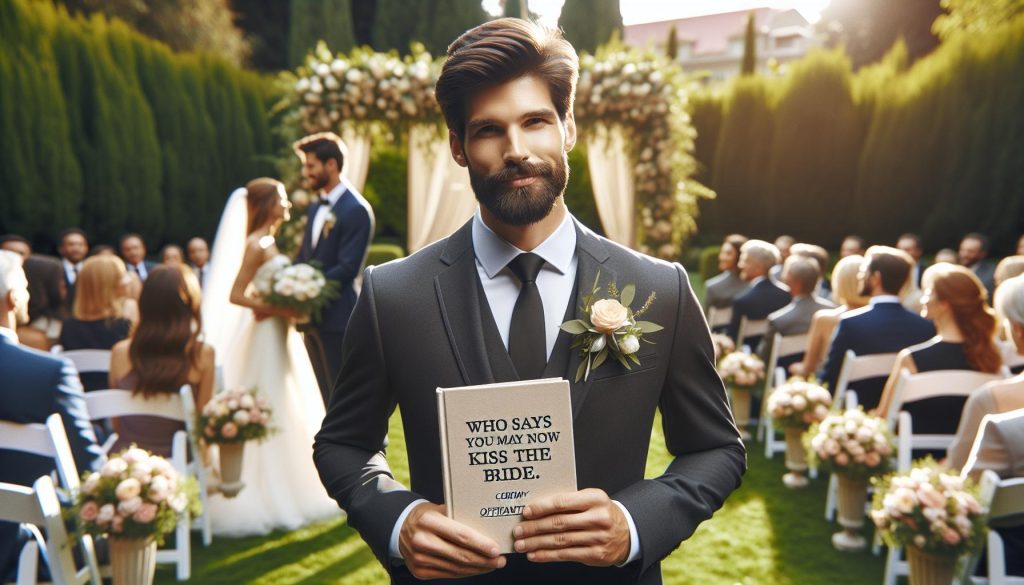Your wedding ceremony is a monumental moment, steeped in love, joy, and the promise of forever. But what truly makes it special is the role of the officiant, guiding you through this beautiful tradition. “Who Says You May Now Kiss the Bride: Ceremony Officiant Guide” explores the essential components of officiating a wedding, emphasizing the importance of creating a heartfelt and memorable experience for couples and guests alike. Whether you’re a seasoned officiant or a friend stepping into this meaningful role, understanding the intricacies of ceremony planning is crucial. From navigating personal vows and cultural customs to mastering the art of public speaking, this guide provides invaluable insights and practical tips to ensure your loved ones’ big day is as magical as their love story. Join us on this journey to celebrate love, commitment, and the joy of saying, “I do.”
Understanding the Role of a Ceremony Officiant
A wedding officiant plays a pivotal role in one of the most significant moments of your life-the exchange of vows. Often serving as the bridge between your love story and the formalities of marriage, the officiant ensures that the ceremony runs smoothly, reflects the couple’s style, and honors any traditions they wish to include. Whether a close friend, a religious figure, or a certified professional, the officiant guides the couple and guests through the proceedings, creating an atmosphere of warmth and celebration.
At the heart of their responsibilities, officiants prepare and customize the ceremony to align with the couple’s wishes. They often meet with the couple beforehand to discuss the elements they want to include, such as readings, rituals, or personal anecdotes. This collaboration helps craft a ceremony that feels uniquely theirs. Additionally, officiants typically handle the legal aspects of marriage, including ensuring that all necessary paperwork is signed and submitted-guaranteeing that the bond is not only heartfelt but also legally binding.
Key Responsibilities of a Ceremony Officiant:
- Customizing the Ceremony: Work with the couple to incorporate personal elements.
- Conducting Rehearsals: Help the couple and wedding party understand their roles for a seamless event.
- Fulfilling Legal Obligations: Ensure the marriage is legally recognized by completing necessary documentation.
- Creating an Inviting Atmosphere: Set the tone of the ceremony to make it enjoyable for guests.
Ultimately, choosing the right officiant is about finding someone who resonates with your vision and values. A good officiant will not only guide the ceremony but also become an integral part of your wedding experience, contributing to the lasting memories of your special day.
Choosing the Perfect Officiant for Your Wedding
Selecting the right officiant for your wedding is a crucial step in creating a memorable and personalized ceremony. The officiant not only conducts the proceedings but also sets the emotional tone of the day, making this choice one of the most impactful decisions you’ll make during your planning journey. A great officiant should resonate with your values and vision for your wedding, helping to craft a ceremony that reflects your unique love story.
When searching for the perfect officiant, start by considering the type of ceremony you envision. Are you leaning towards a traditional religious service, a non-religious celebration, or something completely unique? This distinction is vital, as different officiants specialize in different types of ceremonies. For instance, if you’re planning a spiritual ceremony, look for someone with a background in the relevant faith tradition. Conversely, a secular officiant may be better suited for a modern or unconventional wedding.
Once you have a sense of the type of officiant that aligns with your vision, take the time to research potential candidates. Read reviews, seek recommendations from friends or family, and don’t hesitate to meet with them in person or over video chat. This meeting is an excellent opportunity to gauge their personality and ensure you feel comfortable with their communication style. A connection with your officiant can enhance the authenticity of your ceremony, making it feel more personal and joyous.
Another important aspect to consider is the officiant’s experience and style. Ask about their approach to crafting ceremonies-do they offer customizable scripts that can include personal anecdotes? Are they open to incorporating specific rituals or cultural elements that are meaningful to you and your partner? Ultimately, this collaboration can transform your ceremony into a beautiful reflection of your relationship, filled with special touches that honor your journey together.
In conclusion, by investing time in choosing an officiant who sincerely understands and supports your vision, you’ll play a vital role in making your wedding day even more special. Their warm guidance and expertise will enhance the experience, ensuring that when the moment comes to pronounce you married, it feels authentic to who you are as a couple.
Essential Elements of a Wedding Ceremony
The emotional heart of your wedding day resides in the ceremony itself. Beyond the vows and rings, there are several essential elements that shape the experience, creating a meaningful backdrop for your promises. Engaging and thoughtfully planned, each component not only enshrines your commitment but also reflects your unique relationship.
The first significant element is the processional, which marks the beginning of the ceremony. This moment is filled with anticipation as the wedding party walks down the aisle, culminating in the appearance of the bride. Traditional music, whether a classic bridal march or a contemporary favorite, enhances the scenery. Couples can also choose to personalize this moment further by including loved ones who hold special significance, such as having a grandparent or sibling accompany one of the partners.
Next in importance is the welcome and opening remarks delivered by the officiant. This introduction sets the tone for your ceremony, often weaving together anecdotes about the couple, expressing gratitude towards guests, and establishing the significance of the gathering. Ideally, this part of the ceremony should feel warm and inclusive, inviting everyone to share in the joy of your union.
An essential component that follows is the exchange of vows. Whether opting for traditional promises or crafting personalized ones, this portion deeply connects the couple, as they articulate their love and commitment openly. Personalizing vows can reflect your journey together, incorporate shared experiences, or express dreams for the future. Additionally, a moment of silence or a brief pause after this exchange allows the weight of the words to resonate with everyone present.
Finally, the blessing or pronouncement is where the magic peaks. Traditionally, the officiant will declare you as married, often concluding with the iconic lines, “You may now kiss the bride.” This moment symbolizes not only legal union but also the culmination of all that came before-bringing together emotions, family, and tradition.
Incorporating these essential elements not only creates memorable moments but also encapsulates the spirit of your relationship. By carefully considering each component, you craft a ceremony that honors your love and invites your guests to witness this beautiful milestone in your lives. Embrace each moment, and let it reflect the unique story that is yours.
Traditional vs. Personalized Wedding Vows
When it comes to expressing your love and commitment, the vows you choose to exchange stand as the heart of your wedding ceremony. Whether you go for traditional vows, steeped in time-honored customs, or opt for personalized ones that resonate with your unique love story, this choice sets the tone for what is perhaps the most poignant moment of your day.
Traditional wedding vows often encapsulate longstanding sentiments of marriage, emphasizing themes like fidelity, love, and support. Phrases such as “to have and to hold” or “in sickness and in health” have echoed through countless ceremonies, imparting a sense of gravity and connection to generations before you. These vows can provide a comfortable framework for couples who appreciate the reassurance that comes from established customs, and they often convey a deep respect for the institution of marriage itself.
On the flip side, personalized vows offer couples a chance to share their individual feelings or recount shared experiences in a more intimate way. Crafting your own vows can be a beautiful process that allows you to reflect on your journey together, celebrating milestones, inside jokes, and what makes your partnership truly special. Personalized vows can range from heartfelt declarations to playful promises, resonating deeply with your partner and guests alike. However, they do require a willingness to be vulnerable in front of your loved ones, which can make the moment even more impactful.
Ultimately, the decision between traditional and personalized vows should be guided by what feels right for you as a couple. Consider discussing how each approach aligns with your personalities and the message you want to convey. Creating a harmonious balance between your identity and the significance of the vows will ensure that this moment reflects your true commitment. Whatever you choose, remember that the essence lies in the sincerity of your words and the love they embody, allowing you both to cherish this milestone for years to come.
Navigating Cultural and Religious Ceremonies
Planning a wedding is not just about the details; it’s also an opportunity to honor your cultural and religious heritage. Infusing elements from your background into the ceremony creates a deeper connection and sets the tone for your celebration. Each tradition carries its own significance and beauty, celebrating love through age-old practices that have stood the test of time. Navigating these cultural and religious ceremonies requires thoughtfulness and a willingness to engage with customs that add richness to your union.
When considering cultural rituals, take time to research and discuss the significance of each element with your partner and families. Ask questions like: What traditions are most important to your families? Are there specific rituals you wish to incorporate? For example, if you are blending cultures, selecting which elements to include from each background-such as a ketubah signing from Jewish weddings, or maintaining the Catholic custom of lighting a unity candle-can create a beautiful and personal narrative during your ceremony. Understanding and respecting these traditions is vital in ensuring that both families feel included and valued.
Incorporating religious components also requires a thoughtful touch. Whether you opt for a spiritual officiant to lead your ceremony or wish to include specific prayers or readings, collaboration with your officiant is essential. Open communication about the desired atmosphere and inclusivity can help harmonize different beliefs and practices. You might consider having a moment of reflection or prayer that honors both backgrounds, ensuring that your wedding is a personal expression of your joined faiths while remaining respectful to each.
While planning, keep in mind that weddings can also be a fantastic time to educate guests about your heritage. Infusing special cultural elements-like traditional attire, music, or even a ceremonial dance-can help create an experience that resonates with everyone involved. Prepare a small program that details the significance of these rituals, giving guests insight into your beautiful merging of traditions. Ultimately, artfully blending cultural and religious traditions into your ceremony not only honors those who came before you but also sets a meaningful foundation for your shared life ahead.
The Process of Writing Your Own Vows
Writing your own vows can be one of the most intimate and powerful ways to personalize your wedding ceremony. It allows you to express your love and commitment in a manner that is entirely your own, weaving your unique experiences, dreams, and promises into the fabric of your relationship. While the thought of writing vows may feel daunting, approaching the process with love and reflection can turn it into a beautiful journey.
Start by reflecting on your relationship and what your partner means to you. Ask yourself questions such as: What are your favorite memories together? What qualities do you admire most in your partner? What shared dreams do you envision for the future? Jot down thoughts and sentiments that come to mind, allowing your emotions to guide you. This is an opportunity to think deeply about your journey together, and your reflections can provide a solid foundation for your vows.
Once you’ve gathered your thoughts, consider structuring your vows into several key segments. Begin with a personal anecdote that highlights a moment in your relationship that had a significant impact on you. Follow this with affirmations of love, expressing why you love your partner-this could include their character, how they make you feel, or the ways they inspire you. Finally, include your promises; these vows are about committing to support, grow, and cherish one another throughout your lives.
As you write, keep in mind to maintain a tone that feels authentic to who you are as a couple. Whether that means being romantic, funny, or a combination of both, the goal is authenticity. Practicing your vows aloud will also help you get comfortable with the words and flow of your commitment. Consider sharing them with a trusted friend or family member for feedback, but remember, these vows are for you and your partner-not for anyone else.
Lastly, be sure to write your vows down in a way that feels special. Many couples choose to have them printed beautifully or written in a keepsake book. This not only serves as a tangible reminder of your promises but also adds a lovely touch to your ceremony that you can cherish for years to come. Embrace this creative process, and remember that the vows you write will be a celebration of your love-a once-in-a-lifetime opportunity to declare your commitment in your own words.
How to Coordinate with Your Officiant
Coordinating with your officiant is a crucial part of ensuring your wedding ceremony flows smoothly and captures the essence of your love story. Establishing a solid relationship with your officiant can set the tone for a memorable and personalized ceremony. Start by scheduling an initial meeting to discuss your vision and expectations. This is an opportunity to share your love story, any specific themes you want to incorporate, and any rituals or readings that hold special significance for both of you.
Once you have established a rapport, consider creating a checklist to guide your planning. Include key details such as:
- Timeline: Discuss the order of events and any timing constraints (like venue availability or sunset for an outdoor ceremony).
- Script Approval: If your officiant creates a personalized script, arrange a time to review and approve it, ensuring it captures your personalities and the tone you desire.
- Rehearsal Coordination: Confirm the officiant’s availability for the rehearsal, where you can practice the flow of the ceremony, including processionals and key moments.
- Communication: Establish preferred methods of communication leading up to the wedding day-whether through email, phone calls, or in-person meetings-to ensure everyone stays on the same page.
It’s also important to consider the logistics on the day of. Ensure your officiant knows where to park and where to stand during the ceremony. If possible, provide a contact person (like a wedding planner or trusted friend) to assist with any last-minute questions. Don’t forget to discuss the handling of legalities; make sure you both understand what paperwork needs to be signed and filed, ensuring your marriage is officially recognized.
Lastly, embrace this collaborative process with your officiant. Their experience can bring valuable insights, and being open to their suggestions can enhance your ceremony, making it a heartfelt reflection of your love. This is the moment where you will commit to each other, so allow that excitement to shine through in every interaction. By investing time in this coordination, you’ll pave the way for a seamless and joyful wedding experience, ultimately leading to that magical moment when you share your first kiss as a married couple.
Incorporating Family and Friends in the Ceremony
Including family and friends in your wedding ceremony can create a heartfelt atmosphere, making the day even more memorable. Their presence is not just a witness to your vows but a vital part of the love story you are weaving together. Consider unique ways to involve loved ones; perhaps a special reading from a close friend or having family members light a unity candle can add layers of meaning to your ceremony. This act of inclusion not only celebrates your bond with each other but also honors the support network that has nurtured your relationship.
Special Roles for Friends and Family
Think about assigning specific roles to family members or friends that resonate with your shared history. Here are some ideas to inspire you:
- Ring Bearer or Flower Girl: These traditional roles can be filled by younger relatives who can add charm and innocence to the proceedings.
- Readers: Invite friends or family members to read poems, passages, or even personal letters during the ceremony, giving them a moment to share their thoughts and wishes for you.
- Musicians: If you have musically inclined friends or family, consider having them perform live during the ceremony, adding a unique touch that will resonate with both you and your guests.
- Unity Ritual Participants: Whether it’s a sand ceremony, tree planting, or a simple blessing, involving family and friends in a ritual can significantly deepen the emotional impact of the ceremony.
Gathering Testimonials or Messages
Another beautiful way to incorporate your loved ones is through heartfelt messages or testimonials. You can ask close friends or family to write a letter reflecting on your relationship, which can be read aloud during the ceremony. This can serve as a loving reminder of the support you have as you start this new chapter.
By thoughtfully including your family and friends, not only do you personalize your ceremony, but you also strengthen the bonds of your relationships, making your wedding day a true reflection of your journey together. Embrace this opportunity to celebrate love in all its forms-the warmth, laughter, and shared memories make the ceremony uniquely yours.
Tips for Rehearsing Your Wedding Ceremony
Rehearsing your wedding ceremony is a vital step in ensuring the big day flows smoothly. It’s the perfect opportunity to fine-tune the details, alleviate any nerves, and let everyone involved feel comfortable with their roles. Knowing when to face each other, where to stand, and what to say can transform what might feel like a daunting experience into a beautiful, harmonious moment. Here are a few tips to help you prepare effectively for your rehearsal and ultimately create a memorable ceremony.
Start by gathering your officiant, wedding party, and any family members who will be participating in the ceremony. Set aside time to go through each part of the ceremony, from the processional to the vows, to the recessional. Make certain everyone knows their roles and the timing involved. For instance, if a family member is reading a passage, they should practice it aloud so they feel confident on the big day. The more familiar everyone becomes with the sequence of events, the less room there is for errors.
Encourage the wedding party to practice their cues, such as when to enter and exit. A helpful tip is to mark the positions where each person should stand with tape or small markers on the ground. This visual aid can be invaluable during the rehearsal phase. Be sure to walk through any special elements of the ceremony, such as a unity candle or a sand ceremony, so that everyone understands when and how to participate.
After you’ve run through the ceremony, consider setting aside time for a Q&A session. This allows the officiant and participants to clarify their duties, share concerns, or suggest any changes. Open communication is key to alleviating any anxiety, ensuring everyone feels prepared and excited for the wedding day. Lastly, remember to keep the atmosphere light and enjoyable; this should be a joyful rehearsal, echoing the love and commitment you will celebrate shortly.
By thoughtfully preparing and genuinely engaging with your participants, your rehearsal can help build anticipation and excitement for your upcoming wedding ceremony, setting the stage for an unforgettable experience.
Common Wedding Ceremony Mistakes to Avoid
Planning the perfect wedding ceremony can be both exhilarating and overwhelming, making it easy to overlook some key elements that can lead to common mishaps. One of the most significant mistakes couples make is underestimating the importance of communication with their officiant. Clear dialogue about the couple’s vision for the ceremony-whether it’s traditional, modern, or a blend of both-is essential. Failing to align on these elements could result in an officiant delivering a ceremony that feels misaligned with the couple’s dreams.
Another frequent pitfall is neglecting to schedule ample rehearsal time. While it may often feel like a secondary detail, a well-coordinated rehearsal, where every participant knows their roles and sequences, can prevent confusion on the wedding day. Forgetting to communicate details about special elements of the ceremony, such as readings, rituals, or personal touches, can lead to awkward moments that distract from the celebration. Therefore, every involved party should feel confident about their contributions.
Small technical details can also make a big difference. For example, forgetting to check the sound system setup in advance could result in heartwarming vows going unheard. Similarly, overlooking any legal requirements for the officiant, such as proper licensing or signatures, can place the couple’s marriage at risk. Always ensure that your officiant is well-versed in the local legalities to avoid any unnecessary complications.
Lastly, remember that while it is a day for love and connection, tensions can arise. Being overly rigid with the schedule can lead to significant stress. Embrace flexibility and the spirit of the day. Planning for unexpected moments-whether it’s an emotional response or a surprise from a loved one-allows for the authenticity of the ceremony to shine through. Each of these tips can help create a seamless and memorable ceremony that reflects the love and commitment shared between the couple.
Understanding Legal Requirements for Officiants
Navigating the legal landscape surrounding wedding officiants can feel daunting, yet it is a vital step in ensuring your marriage is recognized by law. Each state has different stipulations regarding who can serve as an officiant, making it essential for couples to understand the requirements specific to their location. Many states allow various individuals to officiate weddings, including judges, clergy members, and even friends or family who have been ordained online. This flexibility can empower you to choose someone who resonates with your relationship, but it also comes with responsibilities that must be observed.
One key aspect to consider is whether your officiant is properly registered to perform marriages in your state. In many areas, officiants need to have a specific license or have registered with a local or state authority before the ceremony can legally take place. It is prudent to confirm that your chosen officiant meets all local regulations and is familiar with the necessary paperwork required to file post-ceremony marriage documents. For example, some places may require the couple and officiant to sign a marriage license immediately after the ceremony, while others might have different submission deadlines and processes.
Another important element is the collection of all necessary documents before the wedding day. Couples should ensure that they understand what their officiant needs in terms of identification and licensing. This might include, depending on your locality, a marriage license obtained prior to the ceremony, proof of identity for both partners, and potentially documentation proving the officiant’s eligibility. Having these elements organized can alleviate stress on the wedding day and help ensure the ceremony goes off without a hitch.
Finally, understanding that different cultural, religious, and personal beliefs may influence the officiating process adds another layer of depth to the relationship you create with your officiant. Whether you opt for a traditional church ceremony, a civil union, or a personalized celebration that highlights your unique love story, being informed about the legal requisites keeps your plans on track. Remember, the right officiant is not just someone to pronounce you married; they should also reflect your shared values and vision for your special day. Each of these steps empowers couples to celebrate their love story while honoring the legal and emotional significance of their commitment.
Creating a Unique Ceremony Experience
Crafting a memorable wedding ceremony means infusing it with personality and heartfelt touches that reflect your unique love story. From selecting the officiant to weaving in personal anecdotes, every detail has the potential to create an enchanting atmosphere that resonates with you and your guests. Consider how each component of your ceremony can contribute to a deeply engaging experience that feels both intimate and special, allowing everyone present to feel a part of your journey.
One effective way to personalize your ceremony is by incorporating meaningful rituals. These can range from exchanging personal tokens, such as family heirlooms or letters to each other, to including a sand or unity candle ceremony symbolizing the coming together of two distinct lives into one. Such elements not only enhance the visual and emotional impact of your ceremony, but they also offer beautiful storytelling opportunities that your officiant can weave into the program. Additionally, feel free to customize your vows or invite loved ones to share personal messages or readings, making everyone an integral part of your celebration.
Consider the setting as well; the location plays a crucial role in establishing the tone for your ceremony. Whether you choose a picturesque outdoor garden, a cozy indoor space, or even a unique venue that holds special meaning for you, the backdrop can enhance the ambiance. If the location has historic significance, cultural relevance, or simply beautiful scenic views, discuss how the setting can be utilized to amplify the atmosphere and emotion during the ceremony. It’s also worth brainstorming ideas for decor that reflects your personal style-flowers, lighting, or even a custom archway-that can create a romantic and inviting environment.
Lastly, don’t underestimate the power of music. The right soundtrack can add a layer of emotion and intimacy to your ceremony. Whether you opt for live musicians playing during the processional or select tracks that hold significance for both of you, music can evoke powerful feelings and set the stage for your vows. Consider asking family members or friends who are musically inclined to contribute, or hire a local ensemble to perform pieces that narrate your love story. By creating a unique and memorable ceremony experience, you ensure that your wedding day remains etched in the hearts of all who witness it, celebrating not only your union but the love and joy that brought you together.
Q&A
Q: What is the role of a ceremony officiant in a wedding?
A: The ceremony officiant is responsible for leading the wedding ceremony, ensuring it adheres to legal requirements, and often personalizing the vows. They facilitate the entire ritual, guiding the couple and their guests through the different segments, creating a memorable experience. Discover more in the section on Understanding the Role of a Ceremony Officiant.
Q: How do I choose the right officiant for my wedding?
A: To choose the right officiant, consider their experience, style, and understanding of your vision. Schedule interviews to gauge their personality and how well they connect with you. Reviewing our Choosing the Perfect Officiant for Your Wedding section will help you make an informed decision.
Q: What are some unique elements to include in a wedding ceremony?
A: Unique elements can include personalized vows, unity rituals, or cultural traditions significant to the couple. Incorporating family members into the ceremony can also add meaning. Check out more ideas in the Essential Elements of a Wedding Ceremony section.
Q: Can we customize our wedding vows?
A: Yes, customizing your wedding vows adds a personal touch to your ceremony. Ensure they reflect your relationship and promises. For tips on writing your vows, refer to the Writing Your Own Vows section in the guide.
Q: What should we do if our officiant is unavailable on the wedding day?
A: If your officiant is unavailable, it’s essential to have a backup plan. Designate an alternate officiant who is familiar with your ceremony plans. Communicate with your original officiant to ensure everything is clear. Seek guidance from the How to Coordinate with Your Officiant section for more helpful tips.
Q: How can we involve our friends in the wedding ceremony?
A: Involving friends can include having them perform readings, participate in unity ceremonies, or even stand as witnesses. Their participation can enhance the ceremony’s emotional impact. For creative ideas, explore the Incorporating Family and Friends in the Ceremony section.
Q: What common mistakes should we avoid in our wedding ceremony?
A: Common mistakes include not rehearsing adequately, overlooking legal requirements, or neglecting the sound system. Being unprepared can lead to stress on your big day. To avoid pitfalls, refer to the Common Wedding Ceremony Mistakes to Avoid section for detailed advice.
Q: What legal requirements should we know about for our officiant?
A: Legal requirements for officiants vary by location but generally include being ordained or licensed, and possibly registering with local authorities. It’s vital to ensure compliance to create a valid marriage. Review the Understanding Legal Requirements for Officiants section for precise details.
Wrapping Up
As you embark on the beautiful journey of officiating the most important day in a couple’s life, remember that every detail matters-from crafting meaningful vows to understanding the significance of ceremonial traditions. “Who Says You May Now Kiss the Bride: Ceremony Officiant Guide” equips you with the insights and strategies needed to create unforgettable moments. Don’t wait to dive deeper! Explore our comprehensive resources on wedding etiquette, ceremony styles, and vendor coordination to enhance your understanding and inspire confidence in your role.
For more expert advice and tips, check out our detailed planning checklists and discover how to navigate the exciting world of weddings with ease. Ready to take the next step? Subscribe to our newsletter for exclusive resources and updates, ensuring you stay informed and prepared. Your journey as a wedding officiant starts now-let’s make it remarkable together!











